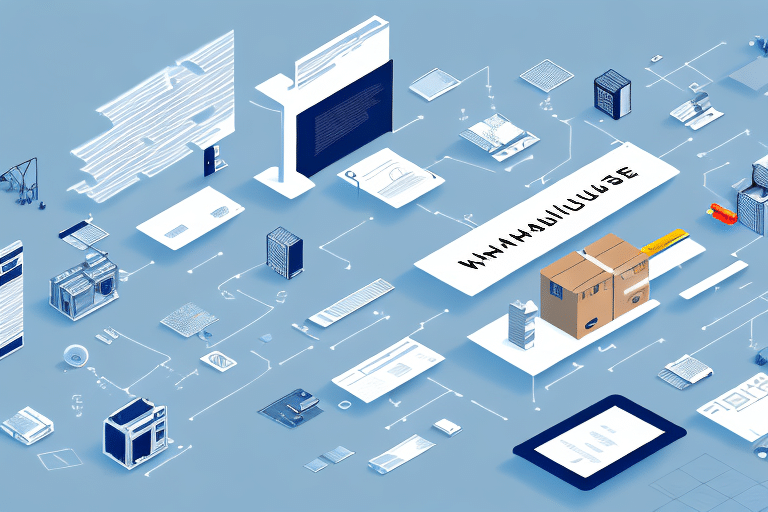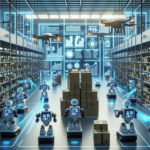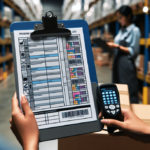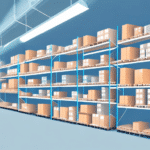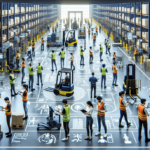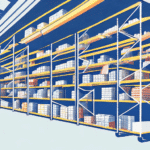The Future of Technology-Forward 3PL Fulfillment Companies
As customer expectations continue to rise, Third-Party Logistics (3PL) fulfillment companies are at the forefront of integrating advanced technologies to meet these demands. The future of logistics is inherently tied to technological innovation, enabling 3PL providers to offer more efficient, secure, and reliable shipping solutions.
Critical Technologies Transforming 3PL Fulfillment Services
Automation
Automation within 3PL fulfillment processes enhances operational efficiency by minimizing manual tasks. Automated systems in order picking, packing, and shipment tracking not only accelerate fulfillment times but also reduce the likelihood of human error. According to Forbes, automation can increase operational efficiency by up to 30%.
Artificial Intelligence and Machine Learning
Artificial Intelligence (AI) and Machine Learning (ML) enable 3PL providers to analyze vast amounts of data for predictive analytics, demand forecasting, and personalized customer experiences. These technologies facilitate smarter decision-making and optimize supply chain operations for better responsiveness and cost-effectiveness.
Internet of Things (IoT)
IoT devices and sensors play a significant role in monitoring inventory movements and providing critical real-time data. This connectivity allows for greater flexibility and agility in supply chain management, ensuring that businesses can adapt swiftly to changing demands.
The Role of Automation and Artificial Intelligence in 3PL
Integrating automation and AI into 3PL operations transforms traditional logistics models into intelligent systems. From automating inventory management to optimizing shipping routes, these technologies empower 3PL companies to deliver more reliable and faster services. This results in increased customer satisfaction and loyalty.
Real-Time Data Analytics and Its Benefits in 3PL
Real-time data analytics provides 3PL companies and their clients with instant insights into inventory levels, shipment statuses, and supply chain performance. Access to real-time data allows businesses to make informed decisions quickly, address issues proactively, and enhance overall supply chain transparency. Studies from McKinsey show that real-time analytics can improve supply chain efficiency by up to 25%.
Choosing the Right Technology-Forward 3PL Fulfillment Partner
Integration Capabilities
When selecting a technology-forward 3PL partner, assess their ability to seamlessly integrate with your existing systems such as e-commerce platforms and ERP software. Effective integration ensures smooth data flow, accurate inventory management, and streamlined order processing.
Scalability and Flexibility
A technology-savvy 3PL provider should offer scalable solutions that can grow with your business. Flexibility in technology adoption allows for quick adjustments to changing market demands and operational requirements.
Security and Compliance
Ensure that your 3PL partner prioritizes data security and complies with industry regulations. Robust security measures protect sensitive information and maintain trust between your business and its customers.
Successful Implementations of Technology in 3PL Fulfillment
Case Study: Streamlining Operations with Automated Systems
A leading 3PL provider implemented automated order picking and packing systems, resulting in a 20% reduction in order processing times and a significant decrease in fulfillment errors. This enhancement led to improved customer satisfaction and increased repeat business.
Case Study: Enhancing Visibility with Real-Time Tracking
Another 3PL company integrated IoT sensors and real-time tracking software, providing clients with up-to-the-minute visibility into their shipments. This transparency allowed businesses to proactively manage supply chain disruptions and improve overall operational efficiency.
Case Study: Leveraging AI for Predictive Analytics
By adopting AI-driven predictive analytics, a 3PL firm was able to forecast demand more accurately and optimize inventory levels. This proactive approach minimized stockouts and overstock situations, leading to cost savings and enhanced service levels.
The Future of Logistics: Emerging Technologies Shaping the Industry
The logistics industry is poised for further transformation with the advent of technologies like blockchain for enhanced transparency, drones for last-mile delivery, and 5G connectivity for faster data transmission. These advancements will continue to shape the future of 3PL fulfillment services, driving innovation and efficiency across the supply chain.
Blockchain for Supply Chain Transparency
Blockchain technology offers a secure and immutable ledger for tracking products from origin to destination. This transparency reduces the risk of fraud and ensures accountability at every stage of the supply chain.
Drone Deliveries for Faster Last-Mile Solutions
Drones are emerging as a viable solution for last-mile deliveries, especially in hard-to-reach areas. Companies like Amazon and UPS are piloting drone delivery systems to enhance delivery speed and reduce operational costs.
5G Connectivity for Enhanced Communication
The implementation of 5G networks promises faster and more reliable communication between IoT devices and supply chain management systems. This improved connectivity enables real-time data sharing and more efficient logistics operations.
Conclusion
Technology-forward 3PL fulfillment companies play a pivotal role in modernizing supply chains, offering businesses unparalleled transparency, efficiency, and reliability. By embracing the latest technological advancements, these companies enable businesses to meet evolving customer expectations and stay competitive in the dynamic market landscape.
Additional Innovations in Logistics Technology
One of the most significant advancements in logistics technology is the use of drones for delivery. Drones can deliver packages faster and more efficiently than traditional methods, especially in hard-to-reach areas. Companies like Amazon and UPS have already started testing drone delivery, and it is expected to become more widespread in the coming years. However, there are still regulatory and safety concerns that need to be addressed before drone delivery can become a mainstream logistics solution.















